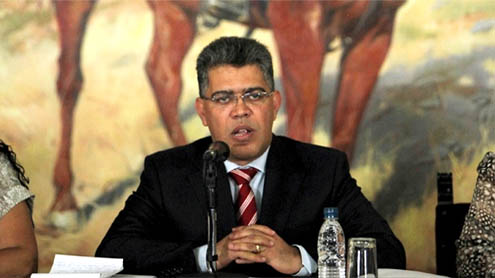 NEW DELHI: The Commonwealth Games end on Thursday with an opportunity lost to show off New Delhi to the world after a collapsing bridge, rogue snakes, health scares and heavy-handed security took the sheen off ” Incredible India”. But India’s economic juggernaut has emerged unscathed despite dire predictions a chaotic Games could repel investors, a signal returns are too enticing for foreign firms hardened to realities of doing business in a booming trillion-dollar economy.For many Indians who only two weeks ago labelled the event the “Shame Games”, it was an unprecedented success, with the country’s best-ever gold medal tally. “The Games has turned out to be better than worst feared,” said V. Ravichandar, head of Feedback consulting in Bangalore, which advises multinationals. “The Games were really a metaphor for investment in India. It’s not a smooth ride but things work out in the end.”After sparse crowds ruined the atmosphere in the first week of the two-week event, crowds soon swelled, with the medal results providing a respite for Prime Minister Manmohan Singh and his ruling Congress party, which before the Games had been under pressure to save India from international embarrassment. They escaped to govern another day, but it may be a nail in their political coffins as a younger generation led by family scion Rahul Gandhi waits in the wings.
NEW DELHI: The Commonwealth Games end on Thursday with an opportunity lost to show off New Delhi to the world after a collapsing bridge, rogue snakes, health scares and heavy-handed security took the sheen off ” Incredible India”. But India’s economic juggernaut has emerged unscathed despite dire predictions a chaotic Games could repel investors, a signal returns are too enticing for foreign firms hardened to realities of doing business in a booming trillion-dollar economy.For many Indians who only two weeks ago labelled the event the “Shame Games”, it was an unprecedented success, with the country’s best-ever gold medal tally. “The Games has turned out to be better than worst feared,” said V. Ravichandar, head of Feedback consulting in Bangalore, which advises multinationals. “The Games were really a metaphor for investment in India. It’s not a smooth ride but things work out in the end.”After sparse crowds ruined the atmosphere in the first week of the two-week event, crowds soon swelled, with the medal results providing a respite for Prime Minister Manmohan Singh and his ruling Congress party, which before the Games had been under pressure to save India from international embarrassment. They escaped to govern another day, but it may be a nail in their political coffins as a younger generation led by family scion Rahul Gandhi waits in the wings.
The wider and much publicised chaos of the preparations highlighted the gap between India and China when it comes to infrastructure. When organisers called on luxury hotel chains to clean up the athletes’ village, it underscored the fact that the private sector motor that drives India had been left out of a Games run by a state immersed in red tape, cronyism and graft. Thus, the Games failed to be the coming-out party the 2008 Beijing Summer Olympics was for China.For foreigners, delegations threatening to quit with filthy rooms, dog faeces and dengue-carrying mosquitoes in the Games Village were the overarching memory.
“TYPICAL OF STEREOTYPES”
It was a sign of the health of India’s business that the blue-chip Sensex stock index hit a near-three year high during the Games. India has attracted a record $21.4 billion in foreign funds into stocks this year — one-third of that since September. State-run Coal India is poised to launch a $3.5 billion IPO, the country’s largest that is expected to see heavy investor demand. It underscores how private industry in India is booming, thanks to tens of millions of Indians aspiring to the middle class.
Companies like Bharti Airtel are expanding to Africa and companies like Tata Motors have bought the iconic brands of Jaguar and Land Rover. A report by credit research agency Moody’s Analytics before the Games said negative publicity could tarnish India’s image as a foreign investment destination. There was also no evidence that one of the most expensive sports events ever, costing some $6 billion, would bring in $5 billion in new investment predicted by organisers. “The image of India has become of the most typical of the stereotypes,” said Robinder Sachdev, head of the New Delhi-based Imagindia Institute think-tank, which estimated the Games would cost India $90 billion in lost investor confidence.
“I think that while many senior managers understand India, the Games may have become an issue in the boardroom when a company, say, is making a decision to invest a car factory in India or Indonesia.” The country needs to spend $500 billion between 2007 and 2012 in infrastructure and is already behind schedule. It can take 10 days to transport a new car from its southern Indian factory to a car dealership in northern Punjab when each state can require a raft of paperwork and bribes. But foreign executives have few places left of this scale in terms of markets where they can bet on long-term returns.
“In a sense, India stands out internationally,” said Amit Tandon, managing director of Fitch rating agency in India. “It may be difficult to come in, but once you are in you make money.” That may signal more complacency ahead from India’s leaders, increasingly focused on state elections next year rather than long-term economic reforms. “I do hope at the end of the Games, someone in Congress or the prime minister will sit down and take stock of the situation,” said Tandon – Timesofindia











